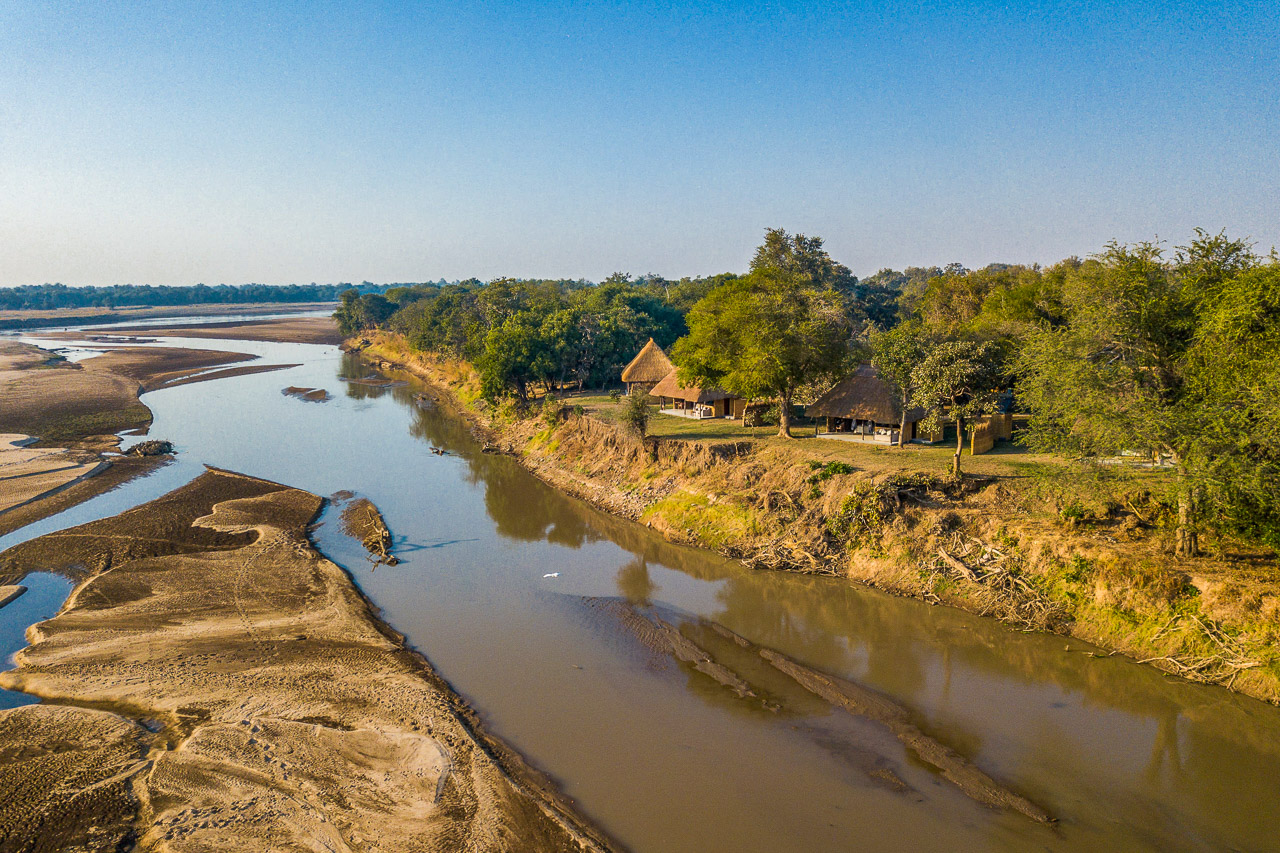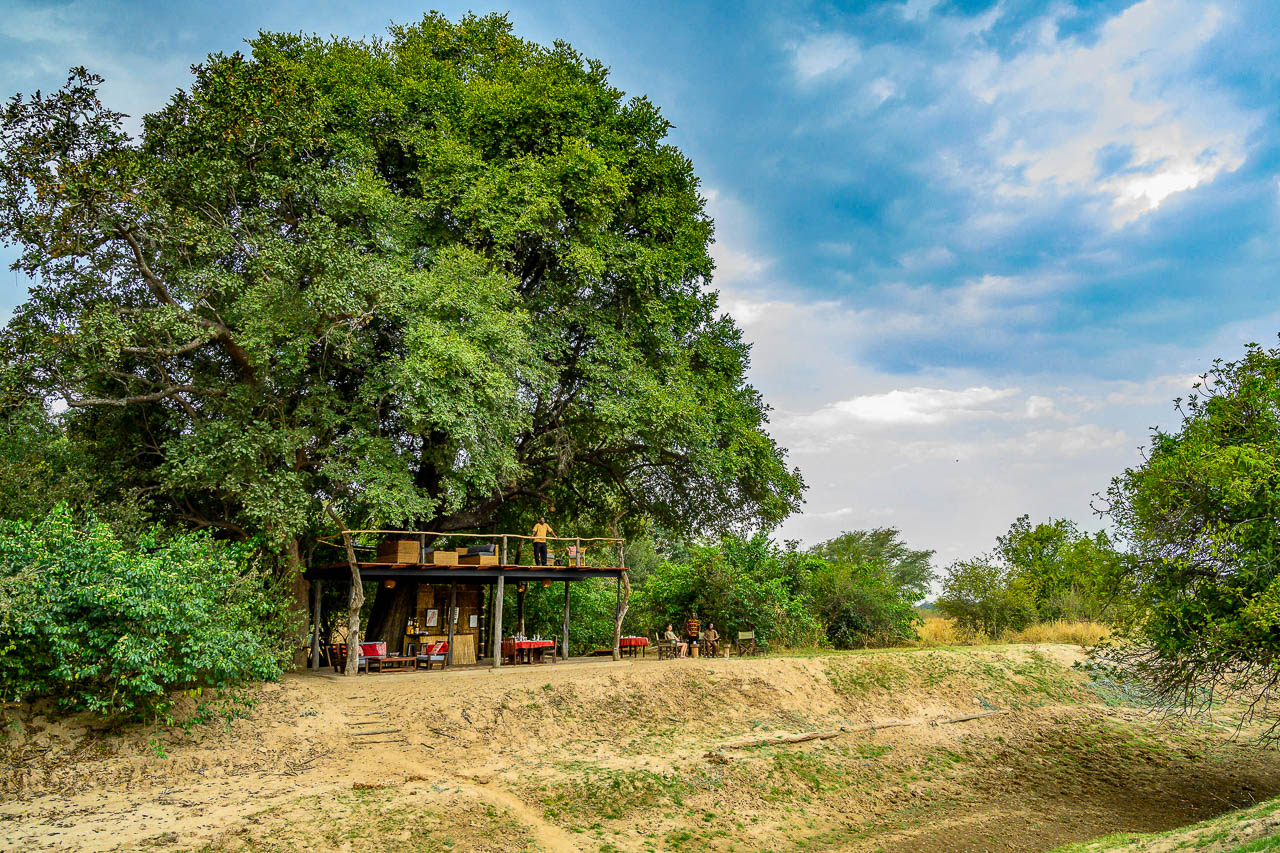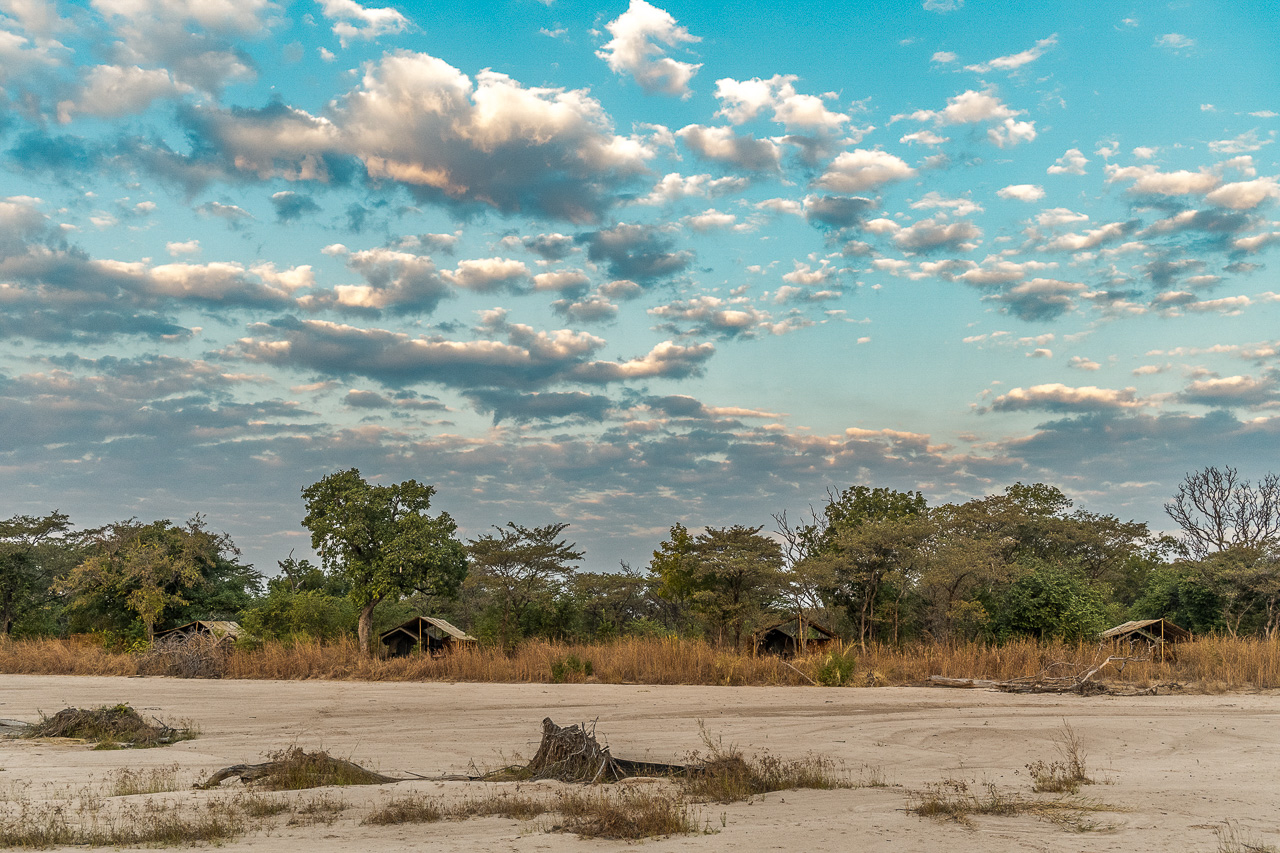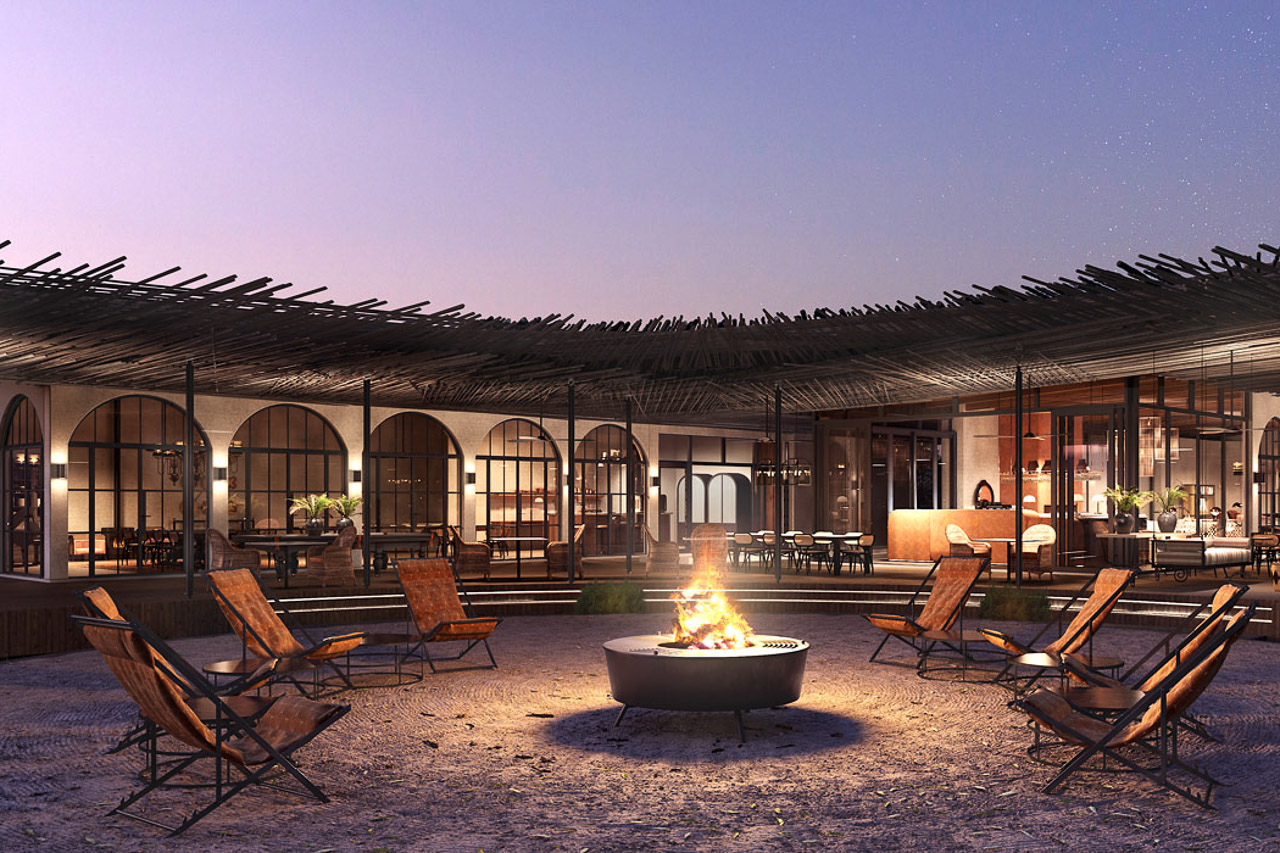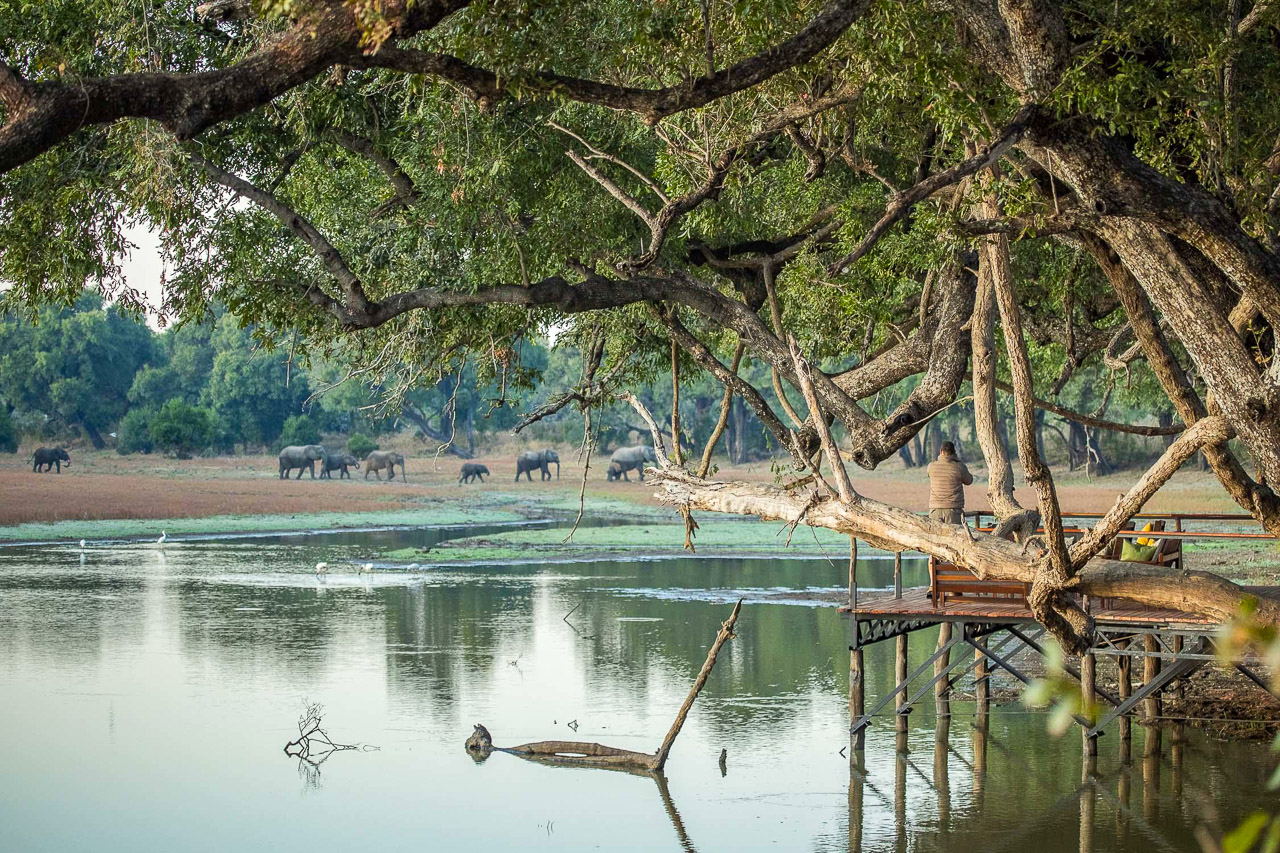Tafika Camp
South Luangwa National Park
Accommodation
Remote Africa Safaris is one of the last family-run safari operators in South Luangwa. John and Carol Coppinger raised their two children at Tafika Camp and know the park inside out. Their portfolio includes the two Trails Camps, Big Lagoon Camp and Chikoko Tree Camp, and Mwaleshi Camp in North Luangwa National Park.
The owner-run Tafika camp comprises six beautifully appointed traditional reed houses made entirely of natural materials. The rooms are situated on a large meadow on the banks of the Luangwa River and come with en-suite facilities, open-air shower and a small veranda with sofa. Four of the rooms are standard, a further room intended for honeymooners contains a huge double bed; a family room situated on the river's edge at the very front of the camp sleeps four guests (shared bathroom). Several loungers and hammocks scattered around the garden invite guests to lay back and relax.
The main building houses a bar, lounge, computer/charging station and various tables for lunch, which is served at 12:00. Guests dine under the starry sky and both the food and service are excellent. The day begins with a good hearty breakfast, which is usually served at the fire pit down by the river.
Location
Tafika Camp is situated in the northern part of the South Luangwa National Park, right next to the Nsefu Sector, which is only shared with Tena Tena Camp and Robin Pope Safaris' Nsefu Camp. There are very few other vehicles to be seen in this region.
The camp can be reached by air from Mfuwe Airstrip to Lukusi Airstrip (15 minutes flight time followed by a 10-minute vehicle transfer), or by vehicle from Mfuwe Airstrip with a transfer time of approximately two hours.
The camp is situated on the banks of the Luangwa River and offers spectacular views of the surrounding area. The water level is very high just after the rainy season and drops again to leave behind large sandbanks.
Wildlife
The camp offers excellent chances of seeing leopard, lion, hyena, buffalo, elephant, hippo, crocodile, giraffe, kudu, zebra, impala and even the odd wild dog. There are few places in Africa where more crocodile and hippo can be seen than in the Luangwa River.
A carmine bee-eater bird hide is erected on the banks of the Luangwa around the beginning/middle of September until the end of October, offering excellent opportunities to photograph these wonderful creatures.
Guests usually come across elephant, buffalo, kudu, puku, giraffe, impala, the odd hyena, lion and even leopard while out on walks. A herd of buffalo swelling to some 1000 animals during the dry season lives in the area between Tafika and the Trails Camps.
Thornicroft's giraffe, Cookson's wildebeest and Crawshay's zebra are unique to South Luangwa National Park.
Activities
The camp offers game drives in an open 4x4 vehicle, walks with armed rangers and night drives. Guests may also wish to visit Mkasanga Village, where the Coppinger's have provided a school and clinic for its residents.
John Coppinger loves to jog and is often seen riding around on his bike. Those in need of a little exercise are more than welcome to join him on a wildlife-rich bike safari.
Tafika is the starting point for a several-day walking tour with overnight stays in two of the Coppinger's bush camps (Big Lagoon Camp and Chikoko Tree Camp). The transfer from Tafika Camp to the Trails Camps is planned as a morning activity. Guests cross the nearby Luangwa River before embarking upon a relatively easy walk through the landscape, while the guide explains interesting facts about the surrounding flora and fauna. The camp is reached around 11 am and encounters with large game are possible.
Tafika Camp on the map
Your alternatives
Learn more about these areas







